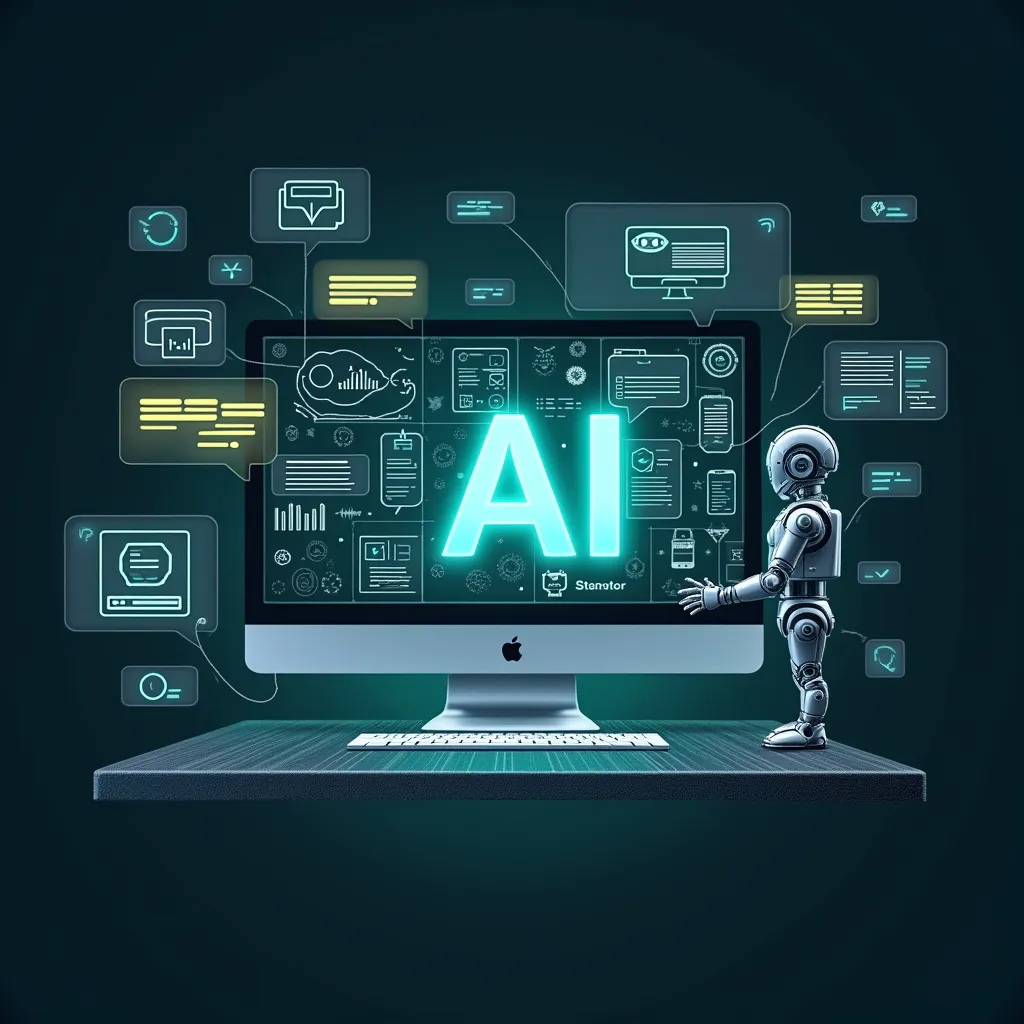ChatGPT was a revolution when it was launched, prompting every other company to enter the race for users. From Gemini to Claude, numerous players have joined the AI competition. The next phase in this AI race is the development of AI agents. These systems can interact with computer environments independently, utilizing tools to perform tasks with little to no human input.
Features of AI Agents
Autonomy and Proactivity
Unlike traditional AI systems, which mostly respond to user commands, AI agents are designed to understand their surroundings, set goals, and take independent actions to meet those goals. This gives them advanced reasoning, learning, and decision-making abilities.
Natural Language Interaction
AI agents can be directed through natural language, making them accessible to users without technical expertise. This capability supports more natural and intuitive collaboration between humans and AI.
Tool Usage
These agents are equipped to work with a variety of digital tools like web browsers, search engines, and software applications. This allows them to handle complex tasks that require navigating digital environments.
Planning and Execution
AI agents can plan a sequence of actions, utilize online tools, and work with other agents or humans. They break down complex problems into steps and carry out tasks systematically.
Applications and Examples
AI agents are now applied in various fields, showing promising capabilities across different industries.
-
Software Development
AI agents like Devin AI are capable of managing entire coding projects based on text prompts. This demonstrates their potential in software engineering and project management. -
Task Management
Systems like BabyAGI use AI to create, prioritize, and complete tasks, making them useful for managing objectives and automating workflows. -
Marketing and Business
AI agents can streamline processes in marketing by coordinating multiple tools and platforms to manage campaigns and business tasks. -
Financial Management
AI agents can potentially oversee investment portfolios by analyzing real-time market data and making strategic decisions.
Implications and Future Trends
The development of AI agents marks a significant shift in technology and how we interact with it. By utilizing multimodal models, some AI agents may eventually allow users to create applications or perform complex tasks without any coding, thereby reducing the need for traditional programming skills. Furthermore, with their ability to automate intricate tasks, AI agents could enhance productivity across various industries by handling tasks that would otherwise require manual effort. As these agents become more advanced, they may redefine our interaction with technology, leading to more efficient collaboration between humans and AI.
While AI agents offer these benefits, they still face challenges, particularly in reliability and decision-making. However, as technology advances, they are likely to become an integral part of automation, problem-solving, and human-AI interaction.
Companies Leading the Development of AI Agents
Several companies are spearheading advancements in AI agents, each with unique contributions:
-
Cognition Labs
Creator of Devin AI, which automates software engineering tasks. Recently raised significant funding for further development. -
MultiOn AI
Developed the Agent API, enabling agents to navigate web browsers and complete tasks from text prompts. -
Reworkd
Offers AgentGPT, allowing users to deploy AI agents with pre-built templates like ResearchGPT and TravelGPT. -
Aomni, Inc.
Built for B2B sales, Aomni helps with research and workflow automation. -
Cal.com, Inc.
Cal AI serves as a scheduling assistant, leveraging natural language processing for task management.
In addition to these startups, established tech companies like OpenAI, Microsoft, and Google are advancing AI tools that support agent functionality.
Anthropic has made significant advancements with its Claude AI model, transforming it into a more capable “computer-using agent” system. The introduction of Claude 3.5 brings groundbreaking new capabilities, including the ability to autonomously navigate between multiple apps and windows on a computer. This allows Claude to perform actions such as looking at a screen, moving a cursor, clicking buttons, and typing text, enabling it to interact with computer environments like a human user.
Key Features:
-
Autonomy: Claude can now take over entire ongoing tasks and jobs with full autonomy.
-
Computer Interaction: It can utilize any website or application installed on a computer.
-
Versatility: Claude can handle both technical tasks, like programming, and simpler tasks, such as trip planning.
Applications:
The new agent capabilities of Claude 3.5 open up possibilities for:
-
Automating complex workflows
-
Performing web research
-
Interacting with multiple software tools to complete tasks
-
Potentially handling customer support inquiries more comprehensively
Limitations and Concerns:
While promising, there are some limitations and concerns:
-
In early tests, Claude 3.5 Sonnet only completed less than half of the tasks in a simple flight booking scenario.
-
There are potential security risks associated with giving an AI agent control over computer systems.
What’s Next?
AI agents show great potential in automating tasks, enhancing productivity, and supporting new ways of working with technology. As this field progresses, we can expect these systems to play an increasingly significant role in transforming our digital interactions and opening up new possibilities for innovation.
Sources
https://www.techtarget.com/searchenterpriseai/tip/9-top-AI-and-machine-learning-trends
https://explodingtopics.com/blog/ai-agents
https://www.technologyreview.com/2024/07/05/1094711/what-are-ai-agents/
https://newatlas.com/ai-humanoids/anthropic-claude-computer-use-agent-ai/
https://claude3.pro/anthropics-claude-3-can-now-create-ai-agents/



